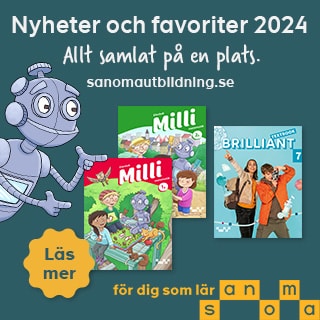Learning to reason in environmental education: Digital tools, access points to knowledge and science literacy
Emma Edstrands avhandling handlar om hur elever lär om miljöfrågor och den roll som digitala teknologier kan spela i sådana undervisningskontexter.
Emma Edstrand
Docent Annika Lantz-Andersson, Göteborgs universitet Seniorprofessor Roger Säljö, Göteborgs univeristet
Anniken Furberg, Universitetet i Oslo
Göteborgs universitet
2017-01-27
Learning to reason in environmental education: Digital tools, access points to knowledge and science literacy
Institutionen för pedagogik, kommunikation och lärande
Learning to reason in environmental education: Digital tools, access points to knowledge and science literacy
Digital technologies and environmental education represent two rather new areas in school curricula. The background of the present research is an interest at the inter-section between how students learn about environmental issues (e.g., climate change) and the role digital technologies may play in such contexts. Thus, the aim is to investigate tool-mediated activities in environmental science education. The digital tools that are used in the instruction in this research are a virtual laboratory and a carbon footprint calculator. The study is guided by the questions of how digital tools codetermine activities and students’ reasoning about scientific knowledge and environmental topics, as well as what implications the use of such tools have for the development of science literacy. Analytically, this is studied within a sociocultural perspective on learning and by relating it to Dewey’s view of learning through inquiry. The empirical material consists of questionnaires and video data. The thesis consists of four studies. Study 1 builds on the analysis of questionnaire data from a corpus of almost 500 students’ written pre- and post-test answers to a problem-solving question in which they are required to design an experiment before and after working with a virtual lab. The second set of data comprises video recordings of upper secondary school students’ work with the two virtual tools. The results are presented in Studies 2 and 3. In addition, and in relation to the interest in science literacy more generally, Study 4 focuses on students’ work with an assignment requiring them to evaluate research reported in two scientific article abstracts on climate change. On a general level, the findings show that digital tools incorporate conceptual distinctions and operations that provide “shortcuts” for the students’ reasoning by providing access points to complex knowledge about the environment. This means that the students are able to engage in sophisticated discussions about environmental issues linked to human-driven climate change without requiring too much specific prior knowledge. However, the results also point to dilemmas connected to the use of such sophisticated tools. That is, for students to make meaning in ways that are relevant to understanding scientific argumentation, some of the processes and conceptual premises need to be unpacked by a competent partner (e.g., a teacher). Through engaging in such tool-mediated activities, students develop new cognitive habits, that is, new ways of reasoning which are made possible through the support of the tools. Thus, in sum, the present empirical studies demonstrate that digital tools have the potential to reconfigure learning activities that support students’ development of science literacy in environmental science education. At the same time, the analyses show that the tools are abstract and far from self-instructive. They index complex forms of knowledge that are not always transparent to the users. Thus, to reach curricular goals, the use of such tools in environmental science instruction presupposes guidance and support by teachers.
Relaterade länkar

Undervisa i artificiell intelligens
 Gy–Vux
Gy–Vux 







